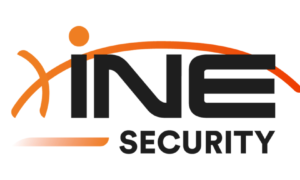The technology sector is currently facing widespread layoffs driven by artificial intelligence. As automated systems begin handling work once completed by people, opportunities for new hires are shrinking quickly. This isn’t only happening in the United States. South Korea is also seeing a troubling spike in joblessness among young adults, marking the worst employment conditions in nearly a decade and four straight quarters of decline.
Will the rise of AI result in widespread human unemployment? Are certain professions destined to vanish? And which skills will be essential for navigating what many are calling the era of “AI-powered downsizing”? Below is a roundup of warnings and forecasts from influential figures in the tech world.
Many analysts believe AI won’t just impact a few job functions, it could touch nearly every career field. Concerns have grown beyond the idea that AI might merely replace junior software developers or entry-level employees. AI systems are now demonstrating capabilities that surpass human specialists, including those with doctoral-level expertise. Meanwhile, robotics advances are enabling machines to perceive and react to their environment in real time. These developments are fueling predictions that far more roles may be vulnerable. Elon Musk, CEO of Tesla, responded to Amazon’s major layoffs on X by claiming, “AI and robots will replace all jobs.” Sam Altman, CEO of OpenAI, echoed this idea, remarking that entire job categories may cease to exist.
Even for positions that survive, leaders say the nature of work itself will be transformed. As AI becomes embedded into every part of organizational workflows, the key responsibilities and skillsets professionals rely on will look drastically different. NVIDIA CEO Jensen Huang told CNN in July, “I’m 100% certain everyone’s jobs will change,” pointing to past technological eras where workplaces became more productive yet employment still grew.
Justin Pincar, Co-founder and Managing Director of Achievable also corroborated this, warning that the biggest shift AI brings isn’t just job loss, it’s a complete reset of what counts as being “skilled.” He says hiring will increasingly focus on real, demonstrated competency instead of degrees, and workers will need to constantly reskill as careers become more fluid. AI-powered learning tools will help people adapt faster, but success will favor those who treat lifelong learning as a requirement, not a bonus.
So, which fields might be disrupted first? Experts commonly identify corporate roles with limited human interaction as the most vulnerable. Within traditional office environments, HR and accounting departments are considered more at risk than client-facing sales teams. Amazon — which announced plans to cut around 14,000 positions — reportedly reduced a large number of administrative roles, including human resources. In an internal memo, CEO Andy Jassy stated that increasing use of generative AI would shrink their corporate workforce over the coming years. Leaders at Anthropic told Axios in September that up to 50% of entry-level white-collar jobs might disappear within five years. Research from Microsoft further indicates that routine tasks such as data entry and document processing are highly susceptible to automation. IBM has also described a future where many back-office roles without direct customer contact could be handled entirely by AI.
Which capabilities will help workers remain employable? Tech executives widely agree: embrace AI, don’t avoid it. They advise people to continue focusing on areas where they excel, but to amplify those strengths by leveraging AI tools. “We won’t be replaced by AI, but by people who know how to use it,” Jensen Huang emphasized. Sam Altman added that this is “the best time to start a business” and encouraged individuals to pursue work that is meaningful and fulfilling.
Others maintain that while automation removes some roles, it simultaneously paves the way for emerging career paths. Vellachi Shankaralingam, Zoom’s president of product and engineering, shared with Korean media on September 30, “People are understandably concerned that AI will replace them, and it is a significant challenge, but I believe we will see new opportunities such as AI security and management of AI agents.” Microsoft also signaled ongoing growth, stating that AI is expected to boost productivity and that the company plans to continue hiring.



































